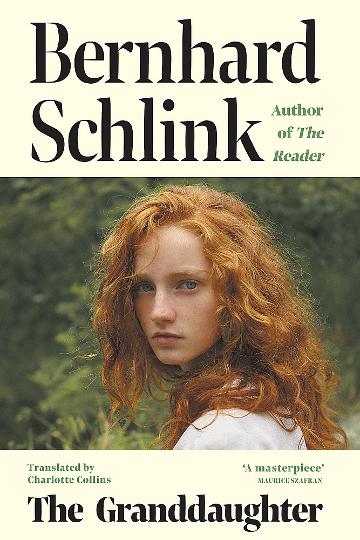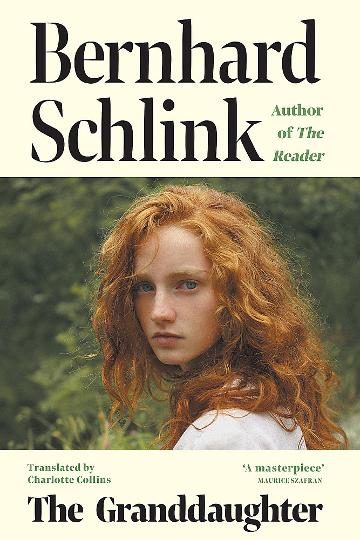Bernhard Schlink
The Granddaughter
The Granddaughter
Couldn't load pickup availability
Susan Midalia's review
Back in the 1990s, when I taught at The University of Western Australia, I encountered one of those astonishingly long German compound nouns that would amuse English speakers were it not for the darkness of its coinage: Vergangenheitsbewältigung. Translated, the word means the struggle to come to terms with the past; it refers specifically to the public debate in German literature, society and culture about the nation’s attempt to accept its guilt about and collective culpability for the Holocaust and other war-time atrocities. I learned this word in the context of lecturing on German writer Bernhard Schlink’s 1995 novel The Reader, which became an international best-seller and subsequently an Oscar-winning movie.
Like The Reader, Bernard Schlink’s new novel The Granddaughter is centrally concerned with the problem of Vergangenheitsbewältigung, this time focused on post-war German reunification. Both novels interweave a personal story and a wider social and cultural narrative that essentially asks: can a nation ever wholly atone for the sins of its past? And in the light of those sins, what might it mean to be German? The Granddaughter’s personal story begins when Kaspar, an elderly bookseller living in Berlin, reads the secret diaries of his deceased wife Birgit, with whom he fell in love in 1960s East Berlin. He discovers, to his shock, that not only has Birgit struggled for many years to feel ‘at home’ in capitalist Germany; she also relinquished a child when she fled from East to West Berlin to marry him. Birgit’s personal sacrifice assumes an allegorical significance about East-West German relations: how much are individuals prepared to lose to gain freedom from Communist rule? And given Birgit’s alcoholism and depression in later life, can that freedom ever compensate for the loss of one’s homeland, and by extension, for the abandonment of communist ideals? What Kaspar also discovers, to his even greater shock, is that Birgit’s daughter Svenja and her daughter Sigrun (the granddaughter of the novel’s title) are now living in a neo-Nazi rural enclave, impervious to reasoned argument about the value of Kaspar’s progressive liberalism. The moral and ethical centre of the book becomes Kaspar’s attempt to rescue his granddaughter from neo-Nazi ideology. As such, given the current rise of right-wing extremism throughout the globe, including Australia where the novel concludes, The Granddaughter offers a crucial and timely warning about the appeal of fascist ideology as the ‘answer’ to widespread social inequality and profound disaffection with democratic governments.
Schlink’s new novel is more politically expansive than the reader, and also more plot-driven. But what the two novels have in common is a belief in the power of art to help us recognise and feel remorse for our moral failings. One of the main characters in The Reader, Hanna Schmitz, a former prison guard at a concentration camp, is overcome by guilt for her crimes after reading Holocaust memoirs and novels. Unable to recognise the suffering in real life of her brutalised victims, she is unable to look away from the horrors of the words on the page. Similarly, the path to moral redemption for Sigrun, the granddaughter, is through Kaspar offering her the gifts of literature and classical music. While I don’t wish to deny that exposure to arts in general and reading literature in particular can be profoundly humanising experiences, we would do well to remember that many of the Germany’s war criminals were highly cultured people who either proved incapable of remorse or continued to deny their heinous crimes.
The Granddaughter is nevertheless an absorbing read; Schlink draws on his skills as a crime fiction writer, for which he is well known in Germany, to create something of a page-turner. Perhaps the novel’s main strength is its refusal to reduce fascist ideology to a caricatured version; Schlink asks us instead to think seriously about its psychological and political appeal. His new novel is the perfect choice for book clubs who enjoy spirited debates about national identity, moral responsibility and the dangers of political extremism, and whether art and literature can ultimately redeem us.
Publisher's Review
'Anyone who wants to understand contemporary Germany must read The Granddaughter now' - Le Monde
'The great novel of German reunification' - Le Figaro
'A masterpiece' - Maurice Szafran
May, 1964. At a youth festival in East Berlin, an unlikely young couple fall in love. In the bright spring days, anything seems possible for them - it is only many years later, after her death, that Kaspar discovers the price his wife paid to get to him in West Berlin.
Shattered by grief, Kaspar sets off to uncover Birgit's secrets in the East. His search leads him to a rural community of neo-Nazis, and to a young girl who accepts him as her grandfather. Their worlds could not be more different - but he is determined to fight for her.
From the author of the no.1 international bestseller The Reader, The Granddaughter is a gripping novel that transports us from the divided Germany of the 1960s to contemporary Australia, asking what might be found when it seems like all is lost.
Translated from the German by Charlotte Collins
Share


